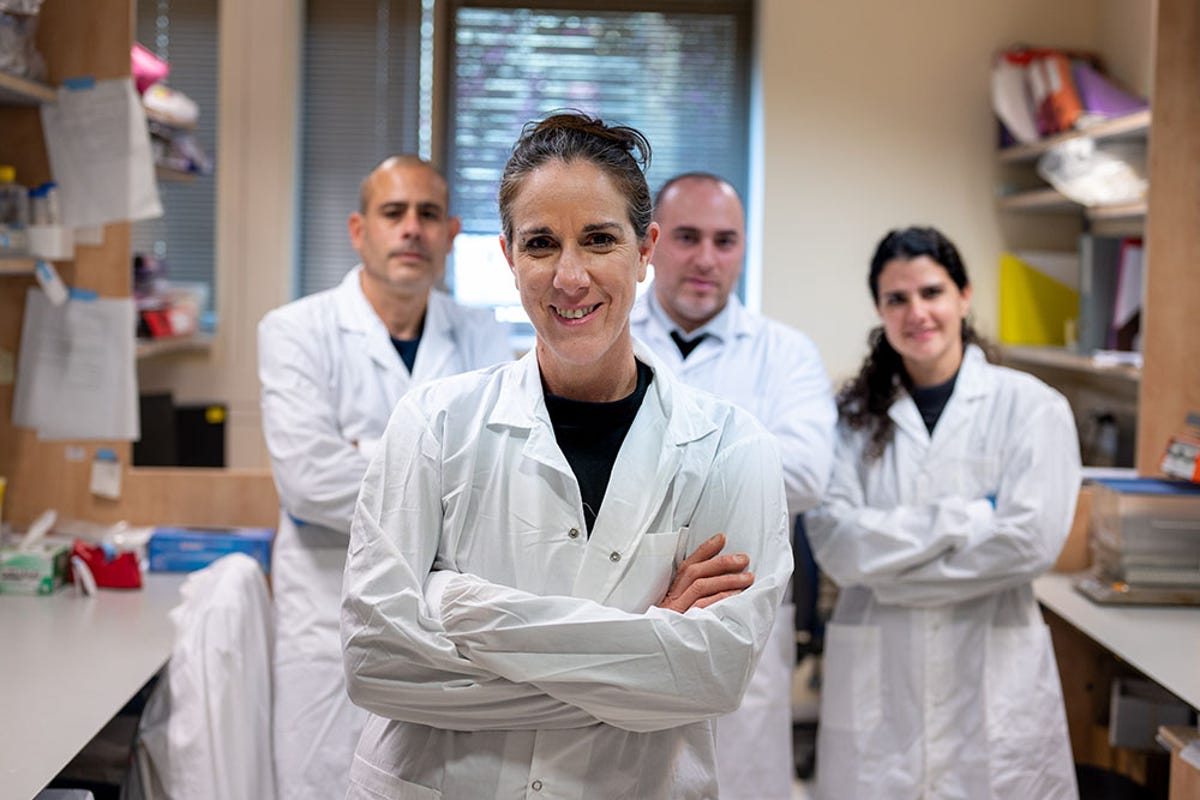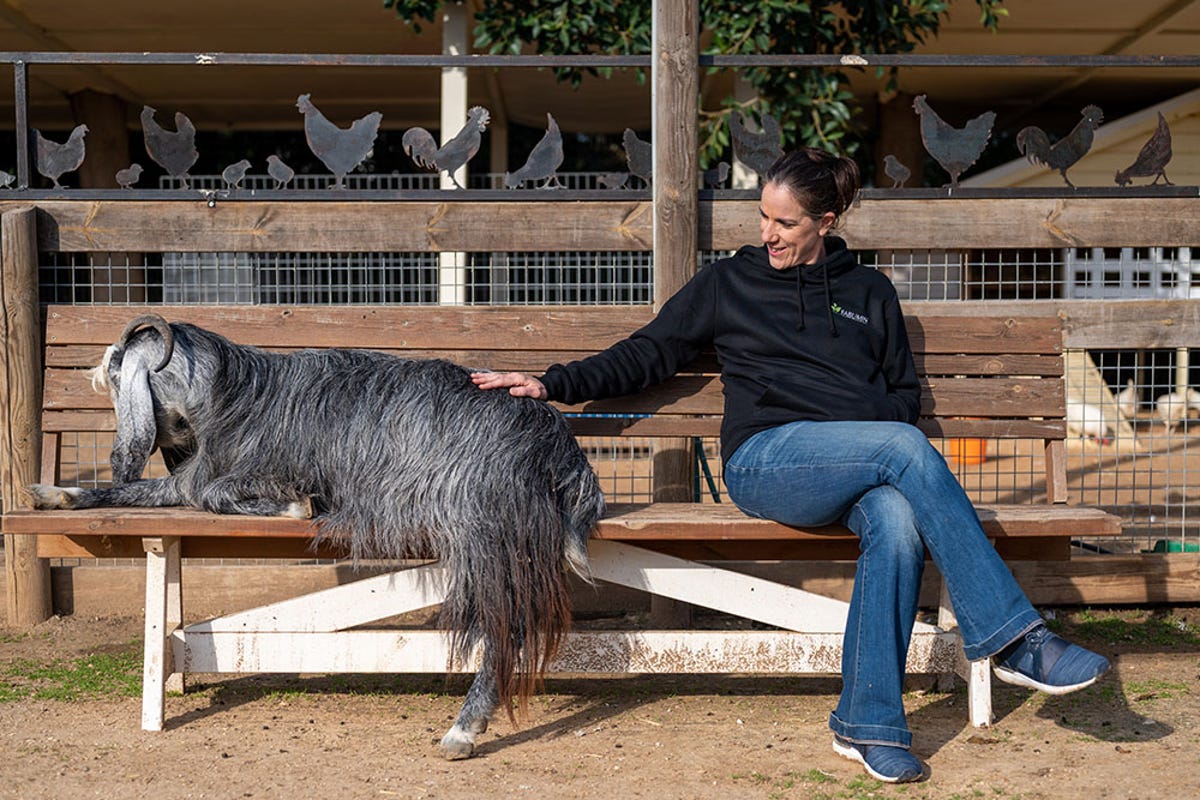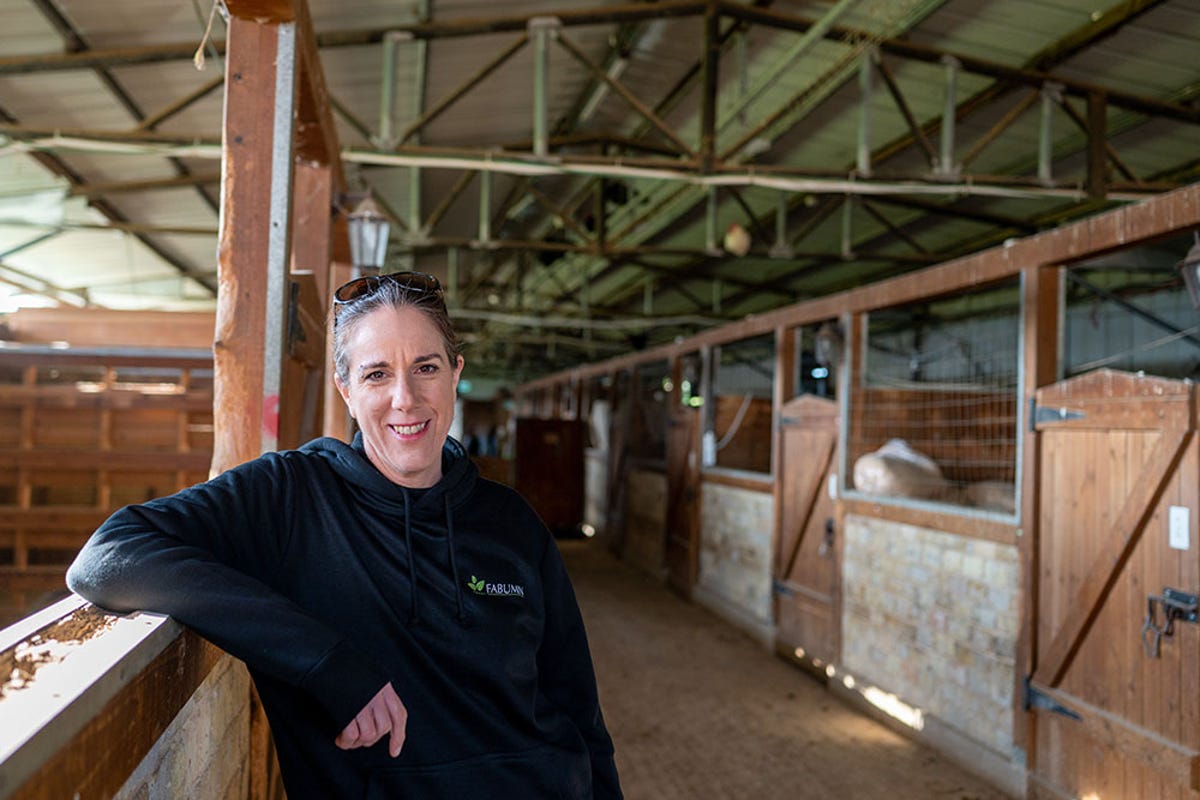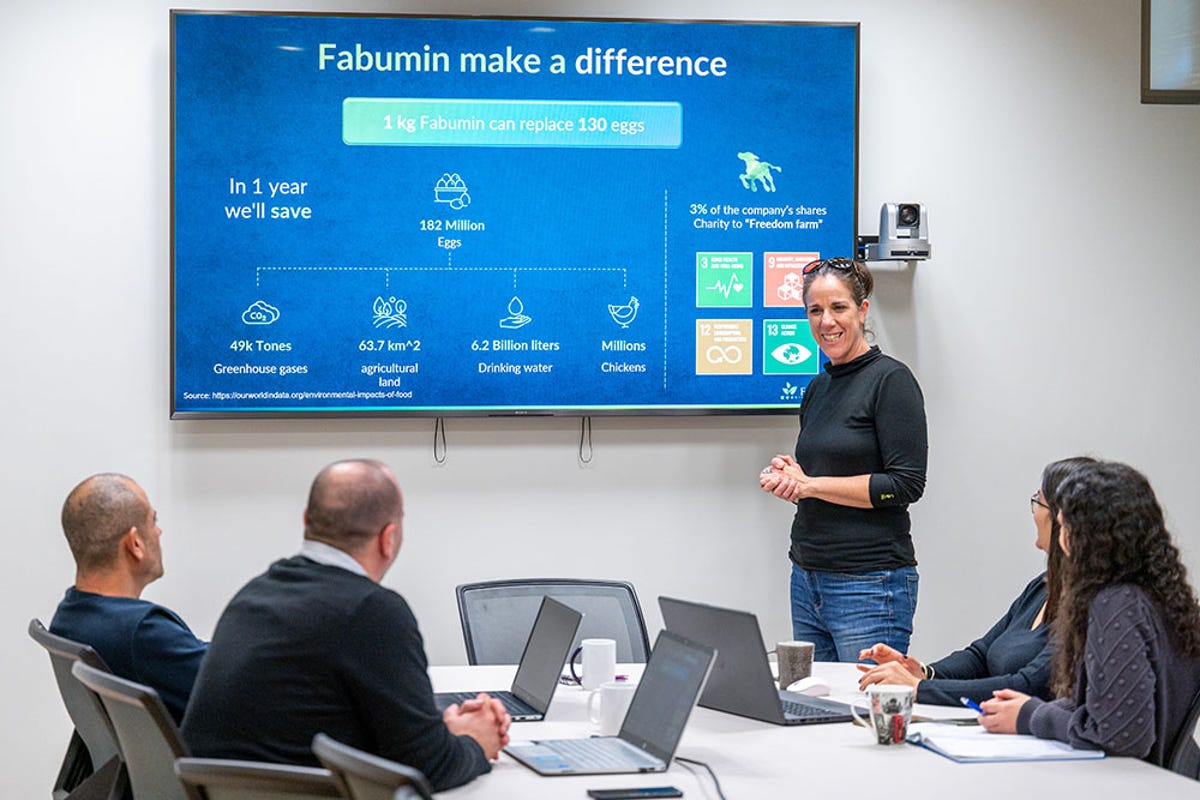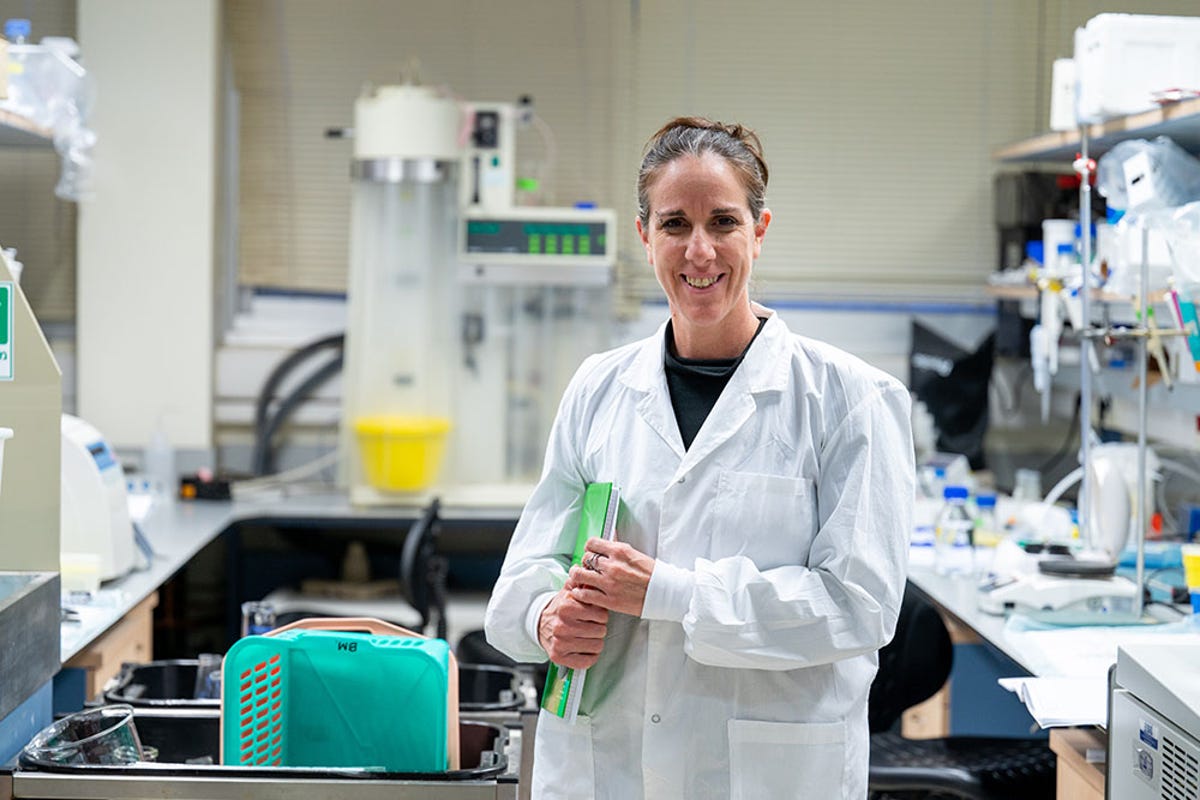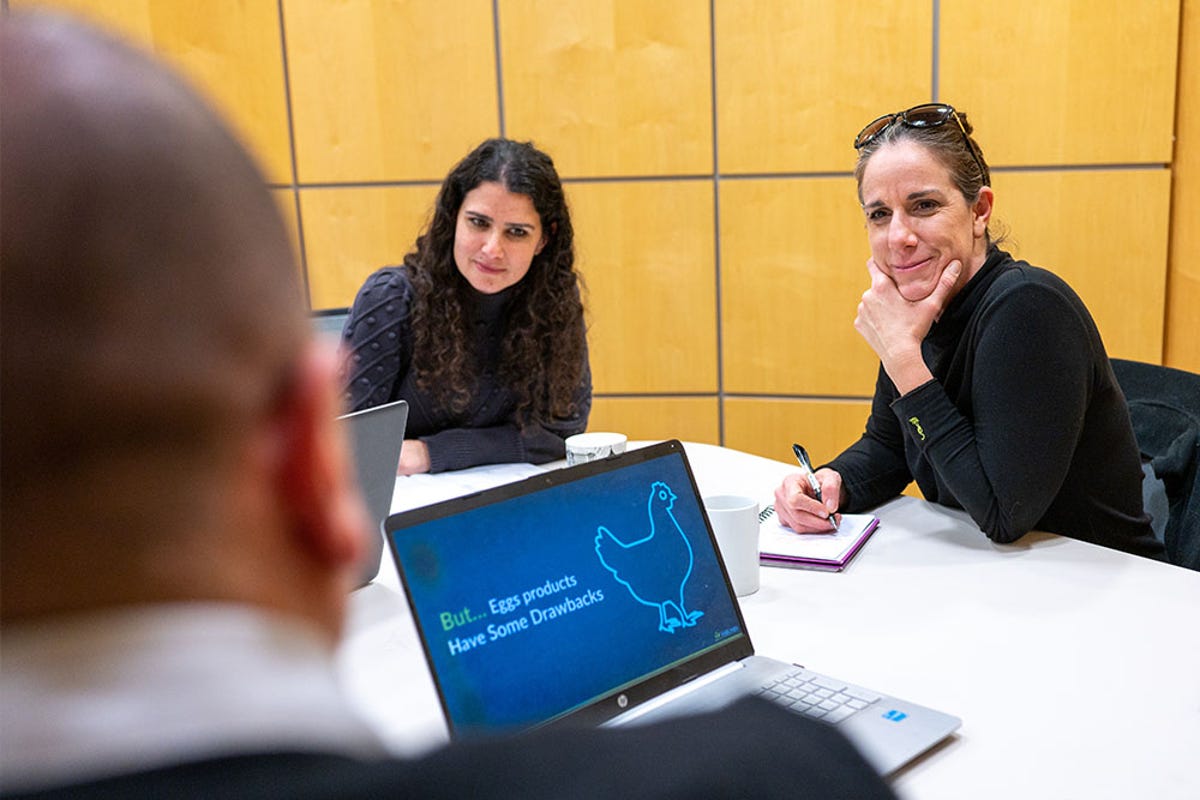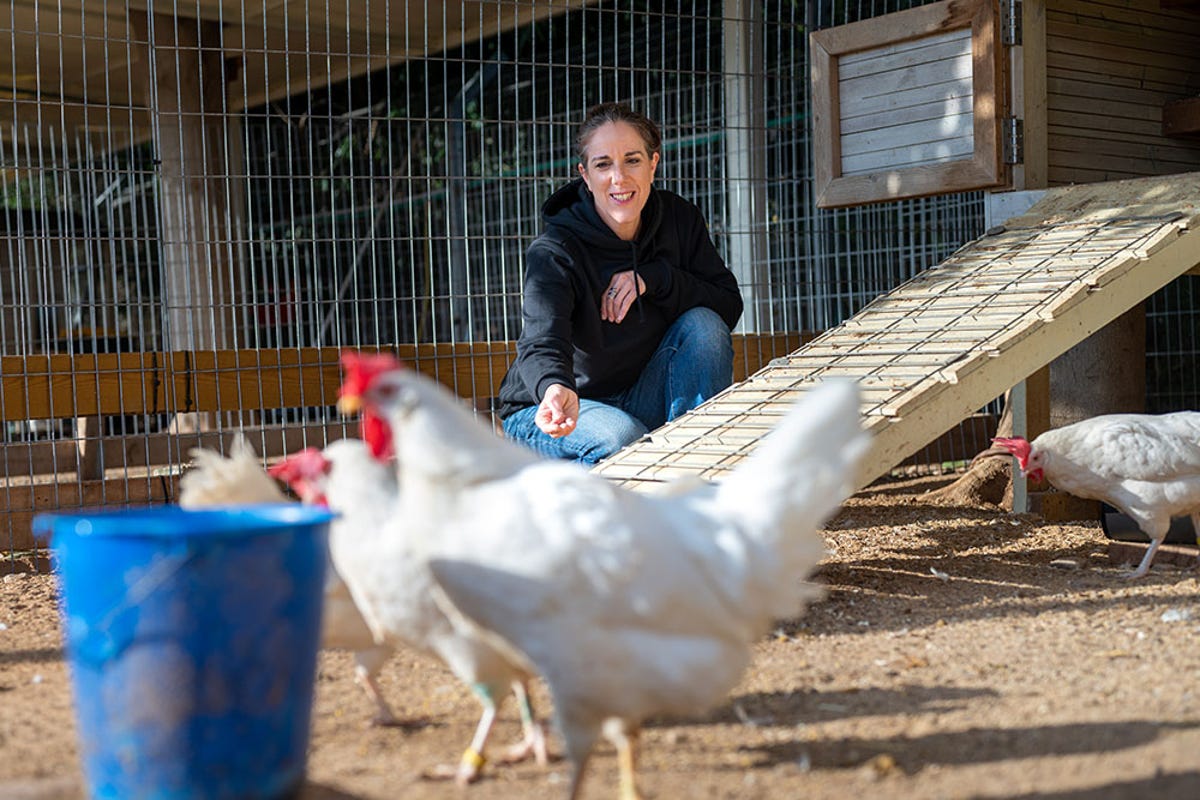Fellow Portrait
Adi Yehezkeli
Fabumin
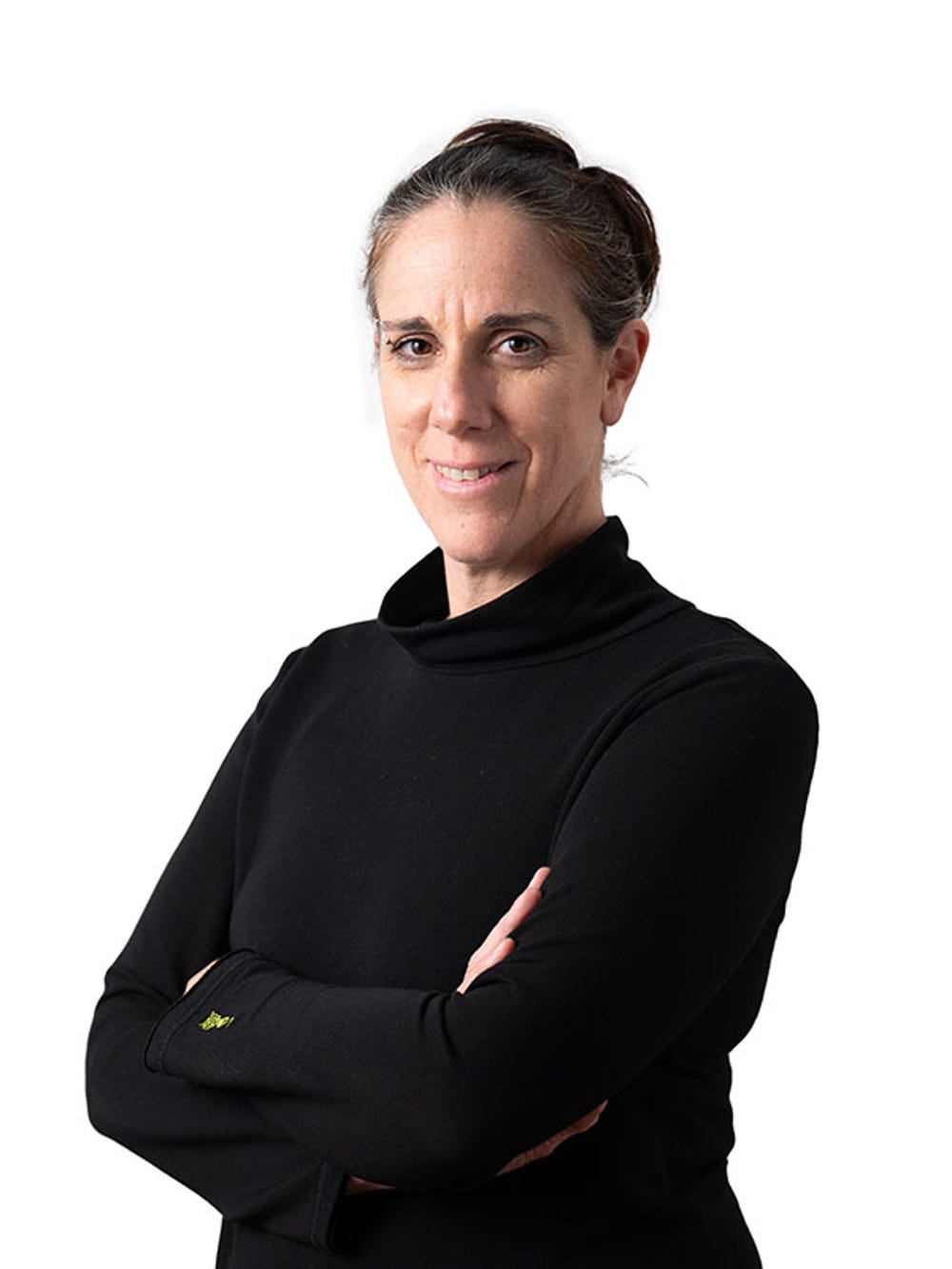
Fabumin’s plant-based egg substitute performs exactly as egg protein does in food products, saving the environment and enhancing animal welfare.
Science & Technology Pioneer Award
Israel
Fellow
2023
Updated March 2023
Commercial egg production takes a high toll on the environment
The food industry uses billions of eggs each year. One egg component, a protein called albumin, is particularly sought after because of its properties as an ingredient in other foods. It fluffs up cakes, smooths out sauces, and holds together meatballs.
But modern industrial egg production has an enormous environmental footprint (source: EurekAlert), contributing to climate change as well as soil and water contamination (source: phys.org). Add to that the fact that egg-producing chickens often live under inhumane conditions and the egg begins to seem less than ideal as an inexpensive protein source or a key recipe ingredient.
We're an impact company. Our passion is to remove the animal from the food chain.
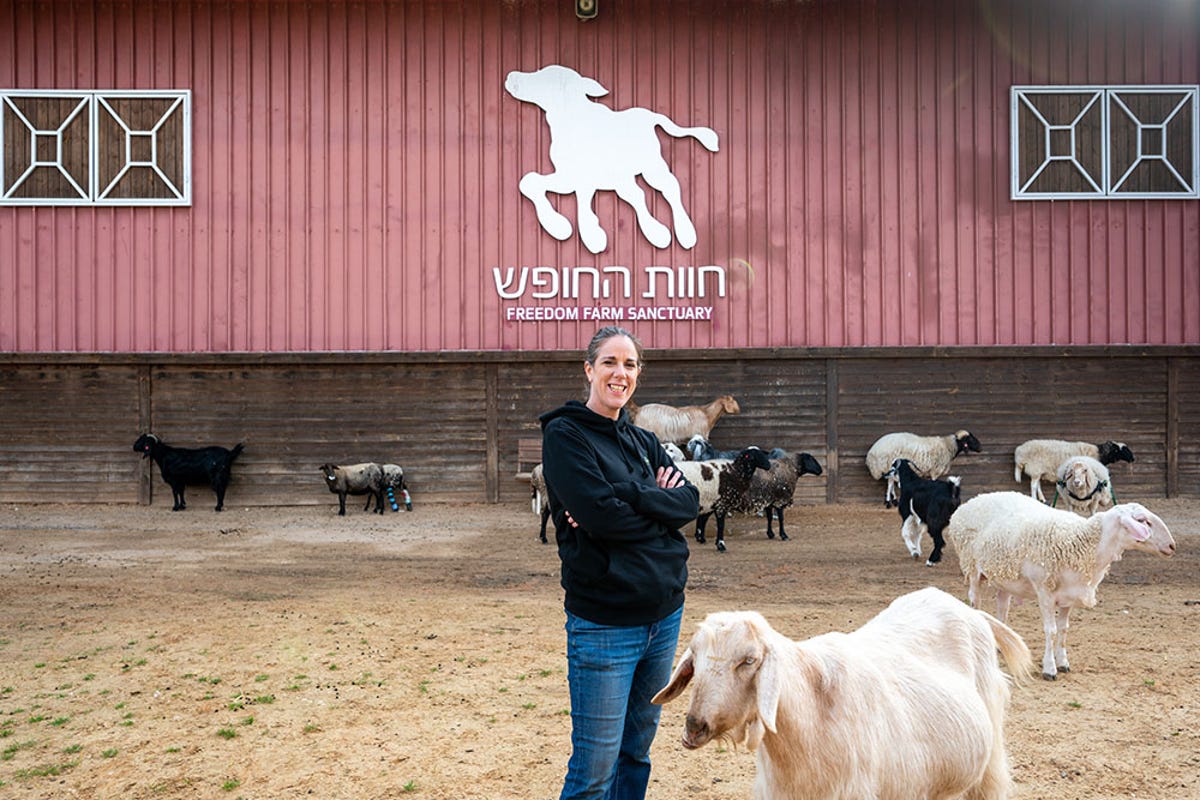
A “magical” substance can replace eggs
Adi Yehezkeli had already committed herself to reducing the environmental impacts of food production and improving animal welfare in 2014, when she and her partner started a company to develop cheese substitutes for the vegan market. A few years later, she came across aquafaba—a liquid left over from the process of cooking legumes—that functions just like eggs when used to replace them as a raw material or ingredient. “It works like magic!” she says.
As aquafaba existed then, however, its magic didn’t scale. There was no good commercial plant-based substitute for egg albumin. Food manufacturers prefer to avoid working with liquid ingredients because of transportation cost and spoilage challenges. So the couple began experimenting with drying aquafaba and developed an innovation that turns it into a powder that is price-competitive with animal-based powdered albumin.
The idea of establishing another company around the innovation crystalized when Adi’s partner suggested they enter the Women of the AgriFood Nation competition. “We didn't have a name or anything else,” she says. “But he pushed me, and I filed the application at the last minute.” She was stunned to advance to win first place. The prize money and a $250,000 grant from the Israeli Innovation Authority enabled Fabumin to continue innovating, apply for a patent, and hire labs to identify ways to overcome the limitations of the drying process.
One kilo of Fabumin can replace 130 eggs. We can save the lives of millions of hens and chickens and save the water being used to maintain the industry.
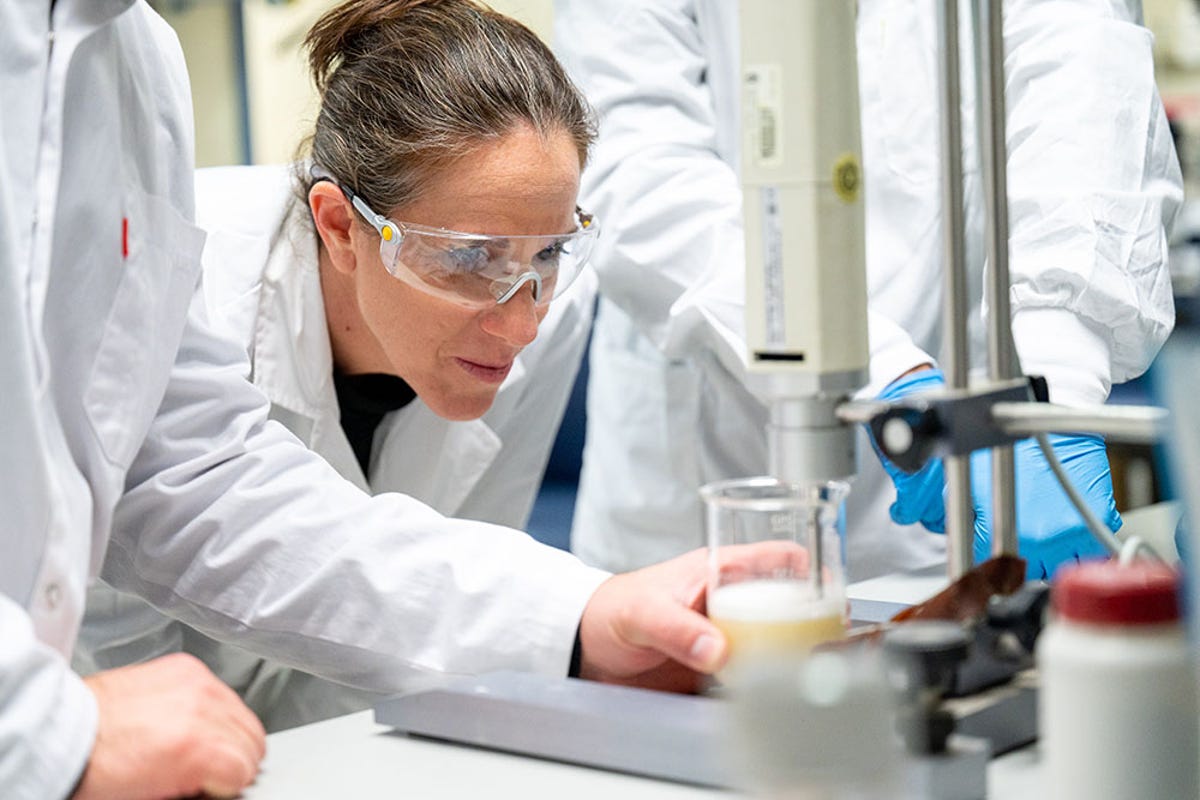
Fabumin replaces eggs to save chickens and the environment
A single kilo of Fabumin can replace 130 eggs. In five years, the company aims to save 234,000 tons of greenhouse gasses, 1.5 million chickens, 500 million eggs, and 29 million liters of drinking water.
When the company moves out of testing and into production, Adi says, “I want to be the biggest plant-based powder company in the raw materials industry. We can replace a lot of things—of course eggs and all their functionality but also things like lecithin.” Fabumin could even potentially serve as a medium for growing cultured meat cells. “I want the company to succeed. I picture trucks with tons of Fabumin in 20-kilo packages going to customers.”
Her definition of success includes more than dollars. “We should inspire people to reconsider what we can do with the things that we're throwing away,” Adi says, referring to the fact that the raw material for Fabumin is a substance that otherwise would be discarded.
By working magic on a magical ingredient, the company maintains its focus on people, planet, and profit. Reflecting again on what drives her, Adi adds, “It’s a cliché, but I'm doing it to leave our kids and grandchildren a better world.”
Now people understand that not only can we benefit from the plant-based industry, we can make money from it.
